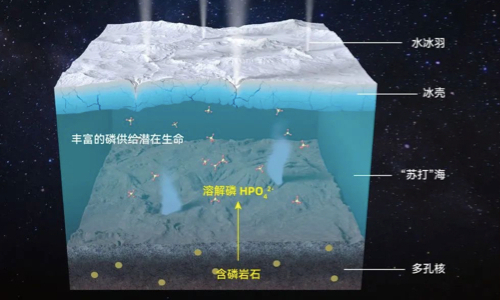
Photo: Xinhua News Agency
An international research team led by a Chinese scientist has found that the ocean on Enceladus, Saturn's sixth largest moon, may be abundant in dissolved phosphates that could support the origin and proliferation of potential microorganisms, according to a report by Xinhua News Agency on Saturday.
The discovery fills a gap in the study of the habitability of Enceladus' water and provides a scientific reference for future exploration of possible life on the moon, the report said.
The team is led by Hao Jihua, a researcher at the University of Science and Technology of China. It published the research paper on the Proceedings of the National Academy of Sciences of the USA, a US journal, Xinhua reported.
As one of the prime targets in the search for life in the solar system, Enceladus has an ice-covered water ocean that erupts into space, which forms a plume that contains almost all of the basic requirements of terrestrial life, according to observations made by the Cassini spacecraft. However, the bioessential element phosphorus had yet to be found.
The international scientific community previously thought that Enceladus might be inhospitable to life due to its absence of phosphorus, an element that is essential to the DNA, biofilms and bones that make up living organisms.
The research team has recently performed a geochemical modeling experiment that simulates the chemical environment of Enceladus' ocean.
The models suggest that Enceladus' ocean may be relatively rich in dissolved phosphorus, meaning that there is a greater possibility that the ocean of Enceladus is habitable, according to the research paper published on September 19.
"Phosphorus can only be used by organisms if it is dissolved in water. The water on Enceladus is highly alkaline and oxygen-free compared to the water on Earth. It's kind of like soda," Hao was quoted as saying in the Xinhua report.
The research team found that in this "soda" environment, phosphorus-containing rocks in Enceladus' core could have dissolved a considerable amount of phosphorus into the ocean water over a period of 100,000 years.
The research paper noted that a liquid water ocean might have existed for tens of million to several billion years inside Enceladus. Therefore, the dissolution of phosphates and other minerals can be expected to have released considerable amounts of phosphorus into the ocean.
Global Times




